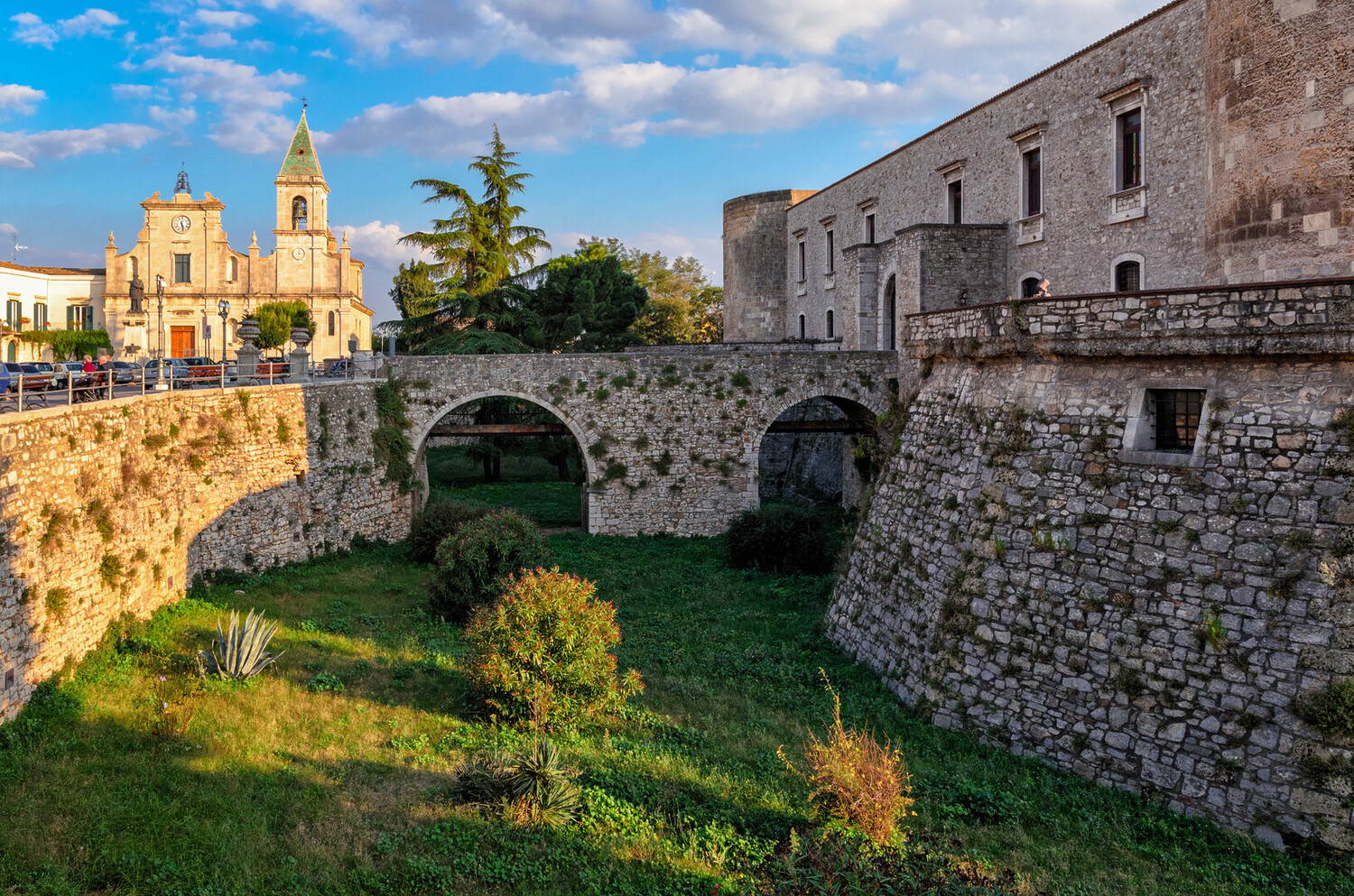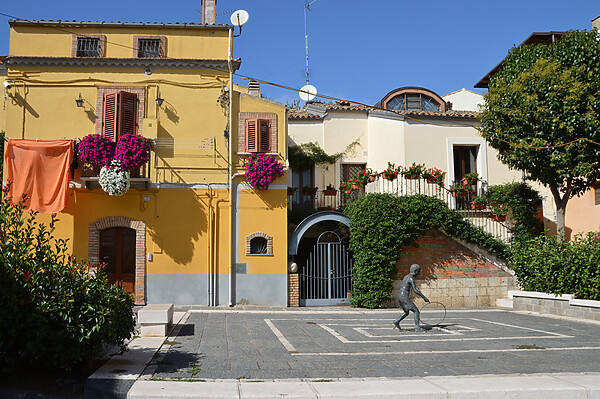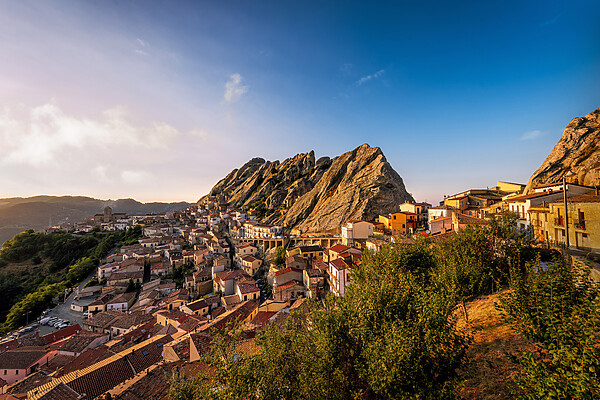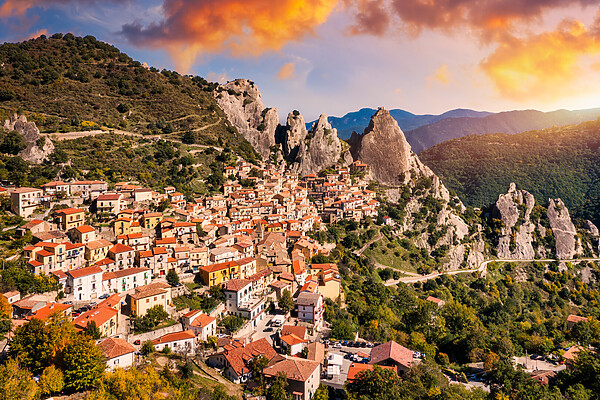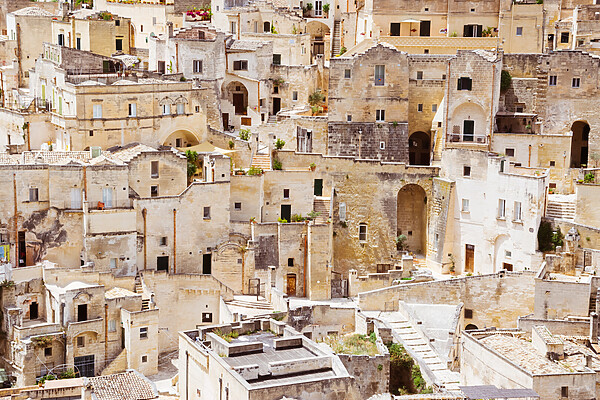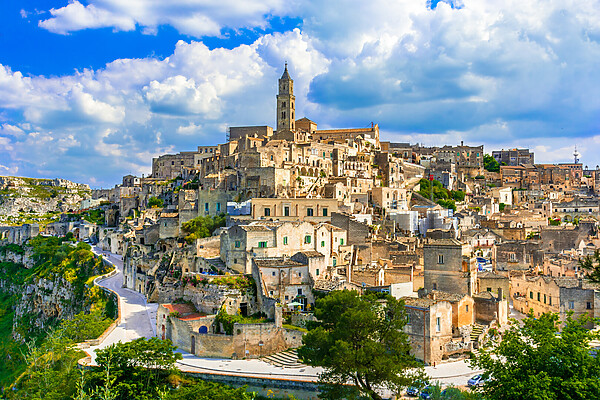Ever dreamt of sipping bold red wine next to Roman ruins without a single tour bus in sight? That’s Venosa. This small town in Basilicata doesn’t shout, it charms. You’ll walk Roman streets, stumble across medieval churches, and maybe even run into Horace’s poetry carved into stone. It’s the kind of place that feels like a secret, but one worth sharing, especially if you are looking for Basilicata wineries that go beyond the usual suspects. Here, Aglianico del Vulture flows generously, the pace is slow (in the best way), and the views stretch to the extinct volcano that feeds the vineyards. So bring your curiosity, your appetite, and someone who appreciates good wine, and get ready to fall for Venosa, one glass at a time
What are the best things to do and see in Venosa Italy?
Explore the Abbey of the Holy Trinity
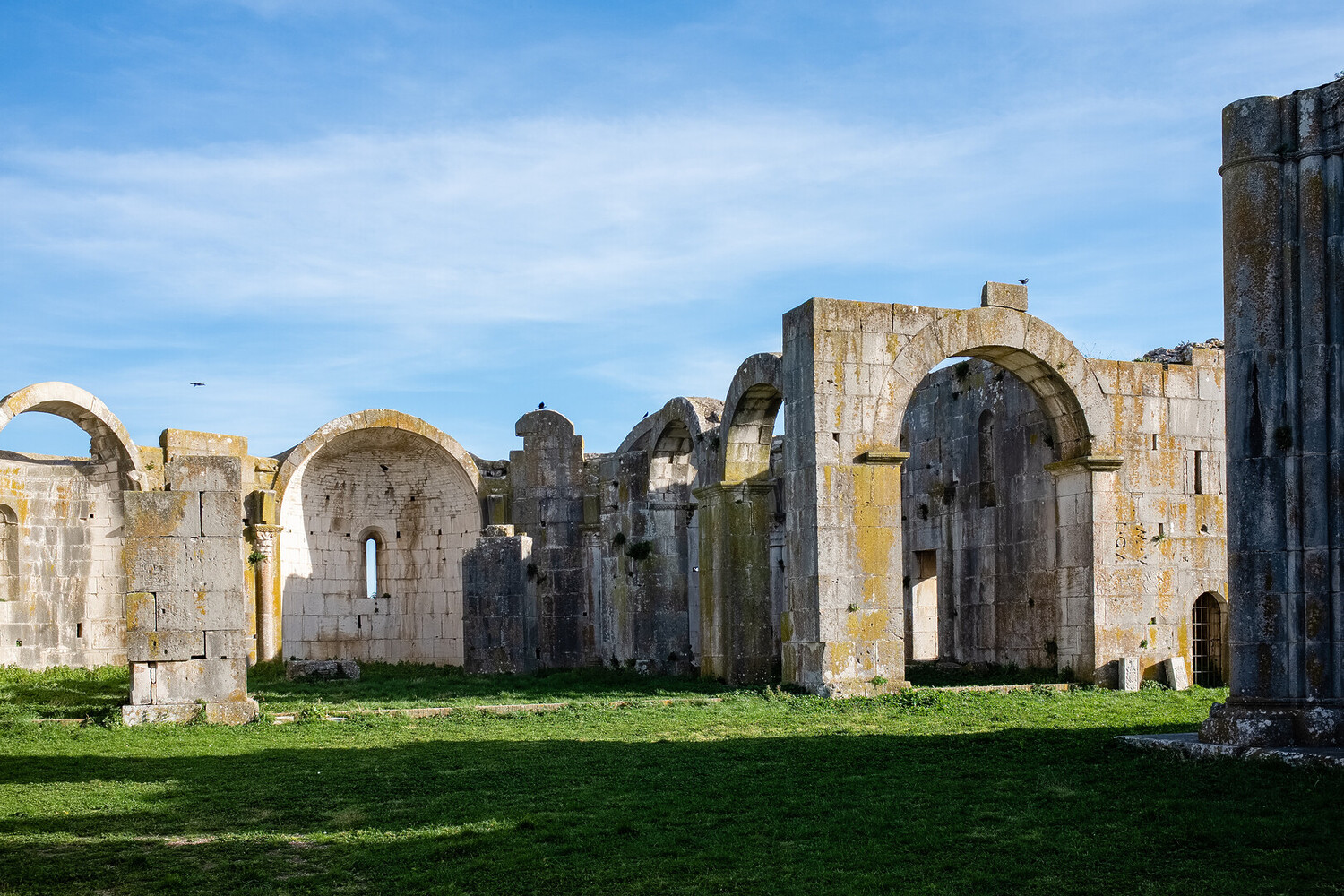
If there’s one place in Venosa that’ll stop you in your tracks, it’s the Abbey of the Holy Trinity. This isn’t just a church, it’s a full-blown time capsule. You’ve got Roman columns, medieval arches, and even Norman tombs all hanging out in the same sacred space. Built in 1059 and never really finished (which somehow makes it even cooler), the abbey feels like someone hit pause on history mid-construction. The half-built church next door? A hauntingly beautiful mystery. Come for the architecture, stay for the quiet chill of centuries past still echoing through the stone.
Wander through the Archaeological Park of Venosa
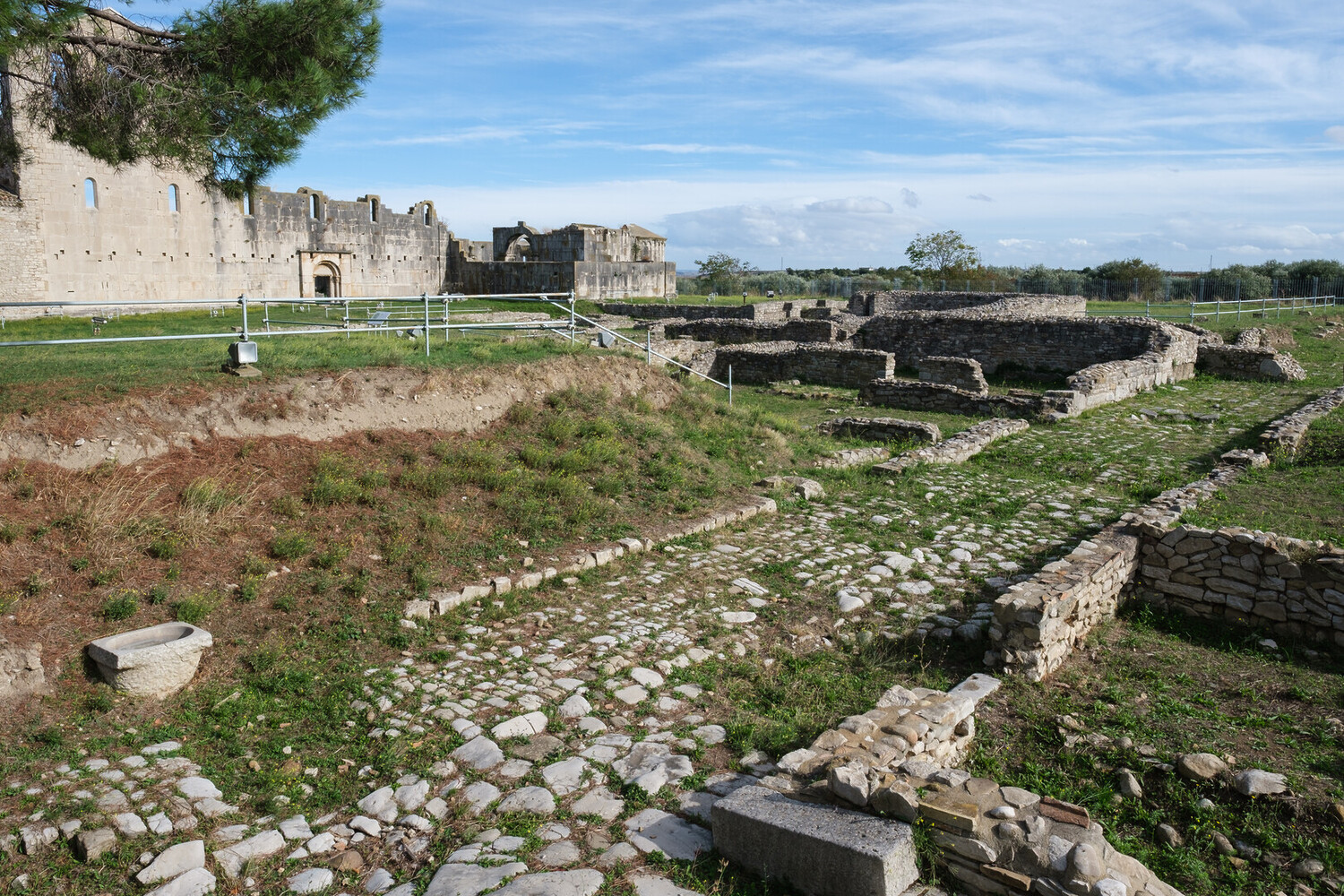
Ready to walk where Romans, Lombards, and medieval knights once strolled? Venosa’s archaeological park isn’t just a pile of old stones, it’s a full-on time machine. From sections of the ancient Via Appia to Roman baths, mosaics, and the bones of a once-bustling amphitheatre, every step here whispers a story. It’s wild to think this quiet town was already making history back in 291 BC. Take your time, look around, and let the past surprise you, it’s all waiting, right beneath your feet.
Stroll to the Aragonese Castle
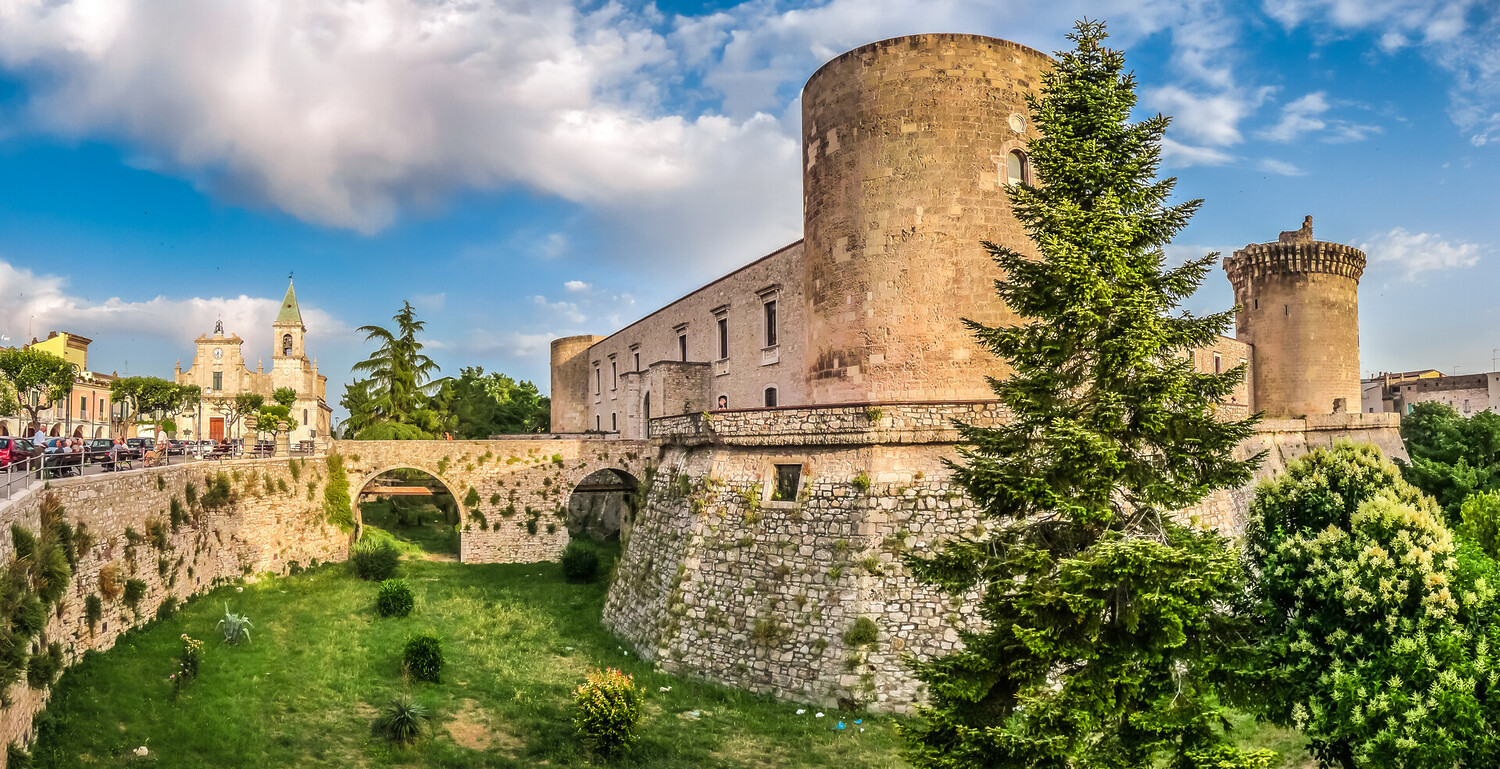
Venosa’s castle isn’t just old, it’s got stories in its walls. Built in the late 1400s by Pirro del Balzo, it’s solid, a bit intimidating, and surprisingly peaceful inside. Those round towers? They were once part of the town’s defense, but now they welcome you into a museum filled with Roman carvings, medieval artifacts, and clues about who really ran the place centuries ago.
Tour the Cathedral of St. Andrew
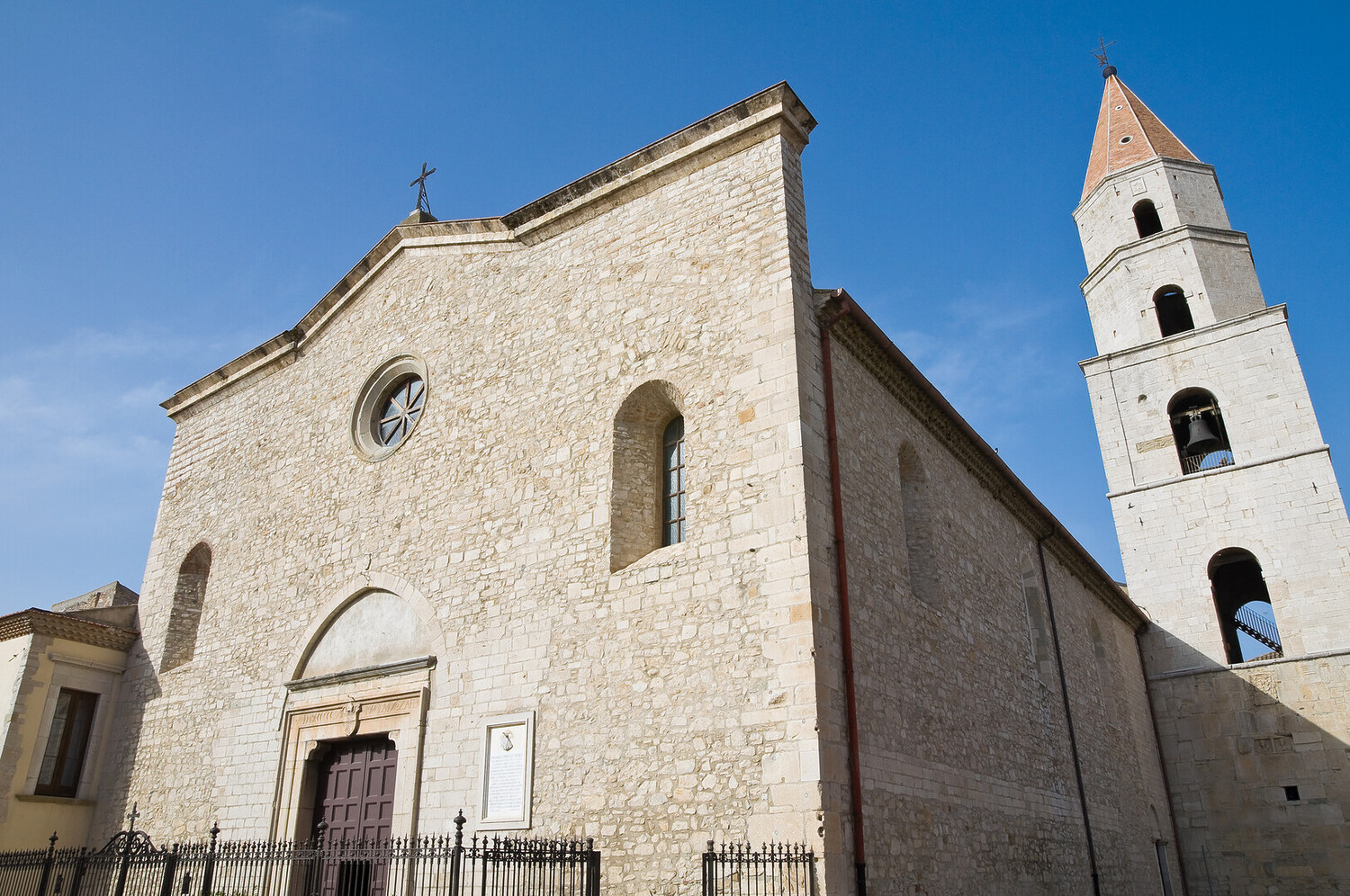
Right in the heart of Venosa, the Cathedral of St. Andrew feels like a quiet exhale. It’s not flashy, but its mix of Romanesque bones and Renaissance touches tells you it’s been standing here for a long time, since the 11th century, to be exact. The Orsini gave it a glow-up in the 1400s, and the bell tower still keeps an eye on the town. Step inside for a moment of calm, or just take it in from the piazza, it’s part of what makes Venosa feel so grounded.
Have lunch overlooking the ruins
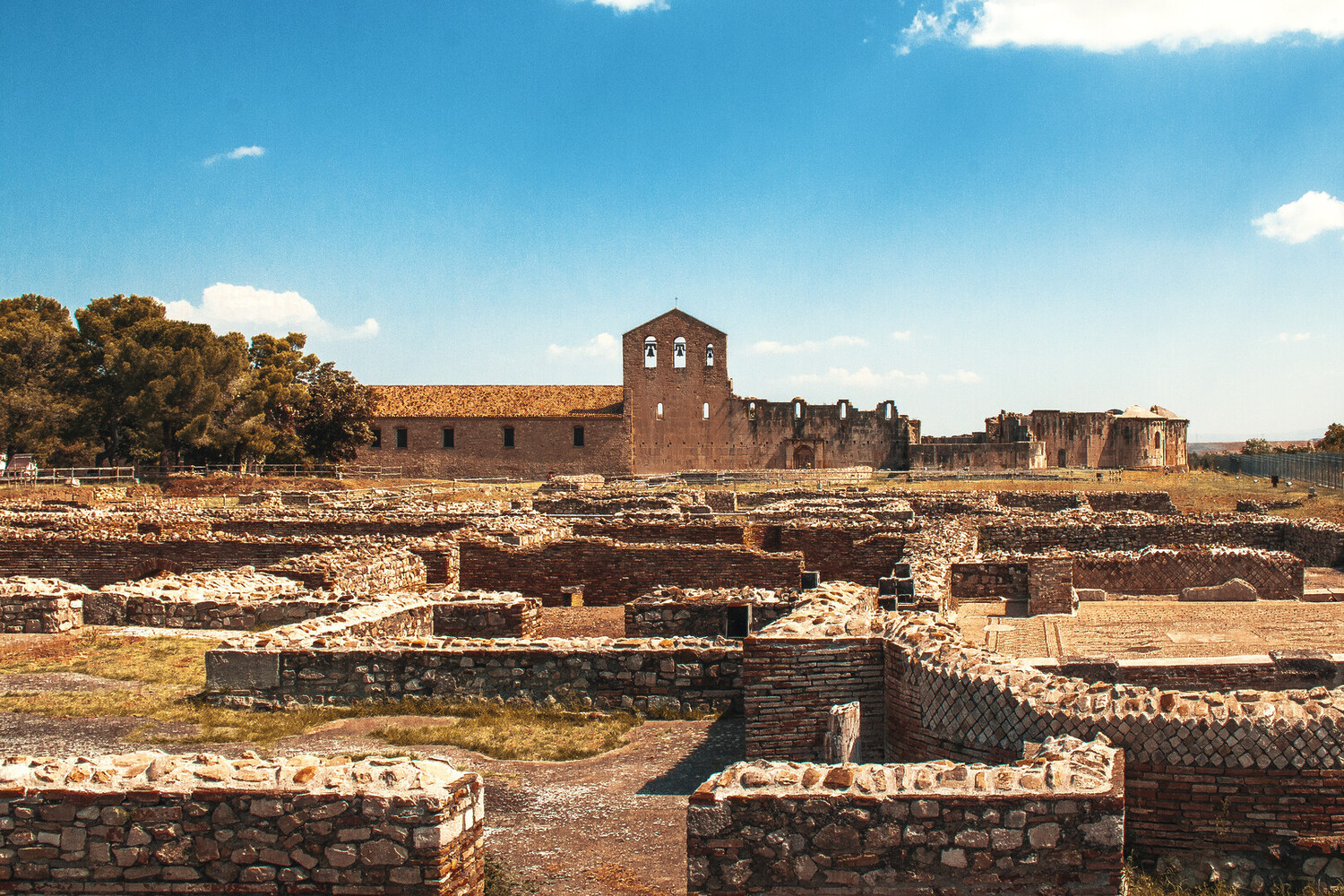
After wandering through Venosa’s layered past, it’s time to do what the locals do best: sit down and eat. Grab a table facing a Roman ruin or tucked beside an old palazzo, and settle in for a Lucanian feast. We’re talking handmade pasta, earthy mushrooms, local sausage, and a glass (or two) of bold Aglianico del Vulture. It’s not just lunch, it’s your final chapter in Venosa, told through flavor.
What are the best things to do around Venosa Italy?
Explore the wine legacy of the region

At the foot of Mount Vulture, Elena Fucci’s family-run estate is one of the most exciting wine stops in Basilicata. Specializing in Aglianico del Vulture, her wines are made from old vines grown on volcanic soil, giving them deep, bold flavor. During your visit, you can walk through the vineyard, explore the cellar, and taste her famous “Titolo” wine. It’s an authentic experience that combines tradition, sustainability, and the rich wine heritage of southern Italy, all in one unforgettable stop.
Explore bold reds beneath the volcano

Just outside Venosa in Melfi, Carbone Vini is a family-run estate with eight hectares of organically farmed vineyards right in the heart of the Vulture wine region. Brothers Luca and Sara revitalized the family’s winemaking legacy in 2005 and today offer tastings in a unique underground cellar carved into volcanic tuff. Expect to sip bold Aglianico del Vulture, like their robust “Stupor Mundi” and elegant rosé “Rosa Carbone” in a cozy, authentic setting that’s both intimate and unforgettable.
Wander in Melfi
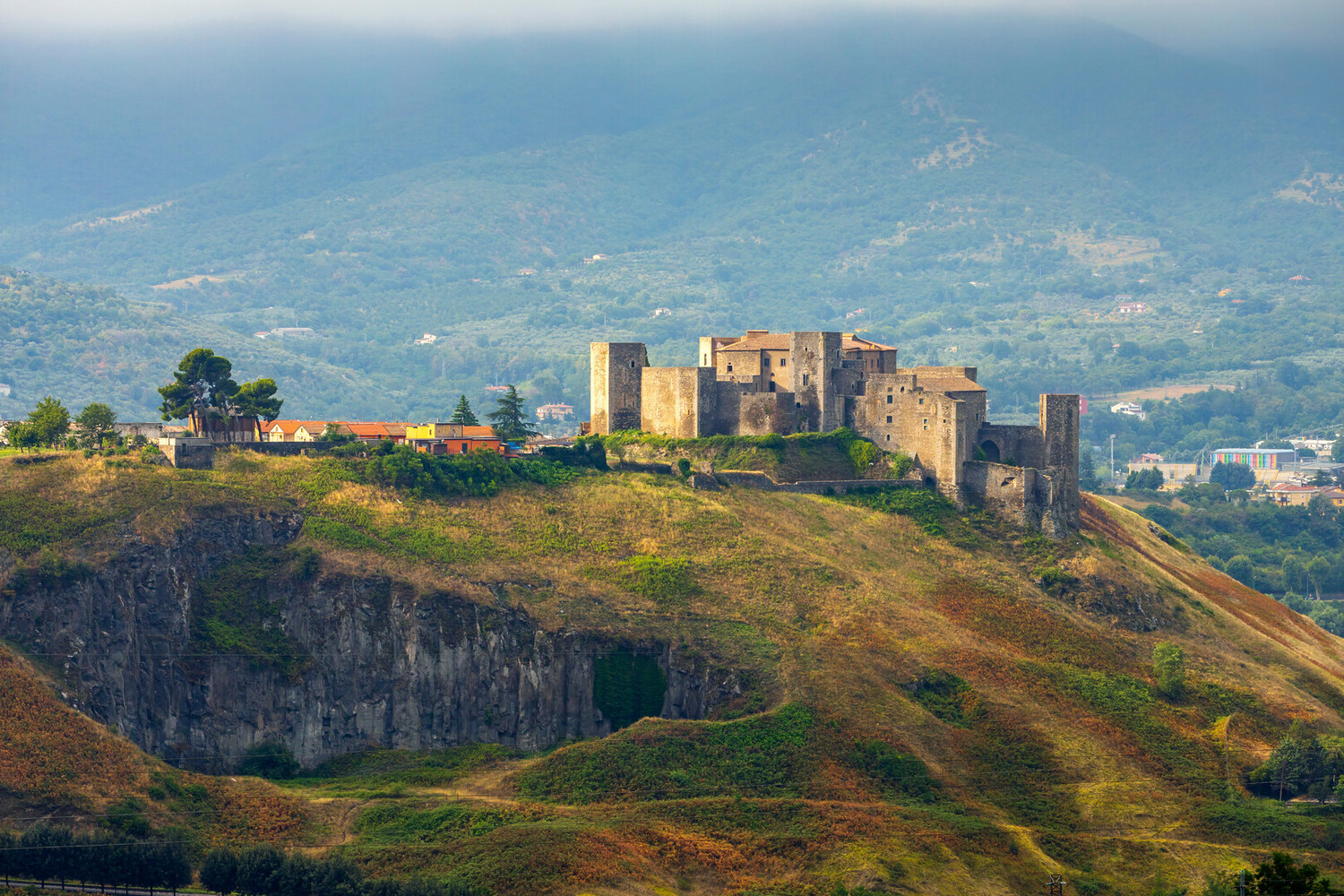
Just 27 minutes from Venosa, Melfi wraps you in medieval stories and vineyard views. With its powerful castle, once home to Emperor Frederick II, and a past shaped by Normans and Popes, the town feels like a living museum. But this isn’t just about history books: Melfi sits right in the heart of the Aglianico del Vulture wine region. So, after exploring the fortress walls and strolling through the old town, treat yourself to a glass of bold red and soak in the volcanic charm that makes Basilicata unforgettable.
Dive into our guide and visit Melfi Italy, to complete your journey!
Visit the ancient stronghold of Acerenza
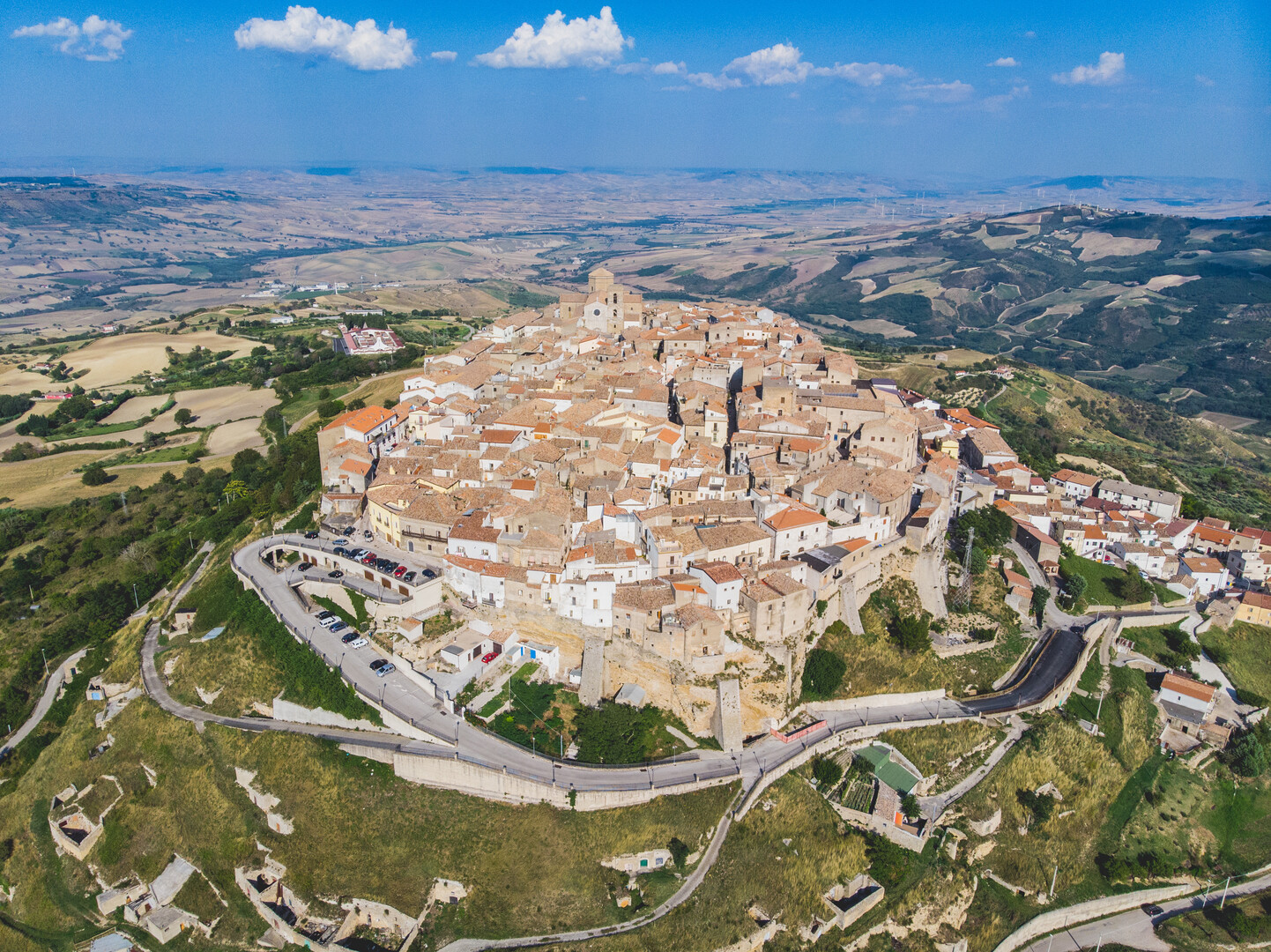
Just 45 minutes from Venosa, Acerenza rises above the hills like a page from a medieval storybook. Known as the “cathedral city,” it’s home to one of Italy’s most remarkable Romanesque churches, the 11th-century Cathedral of St. Mary Assunta and St. Canio. Wander the cobbled streets, take in sweeping views over Basilicata’s rolling landscapes, and feel the quiet power of centuries layered into this hilltop town. It’s the perfect cultural side trip from Venosa, where wine, history, and architecture continue to impress.
Head to Rapolla
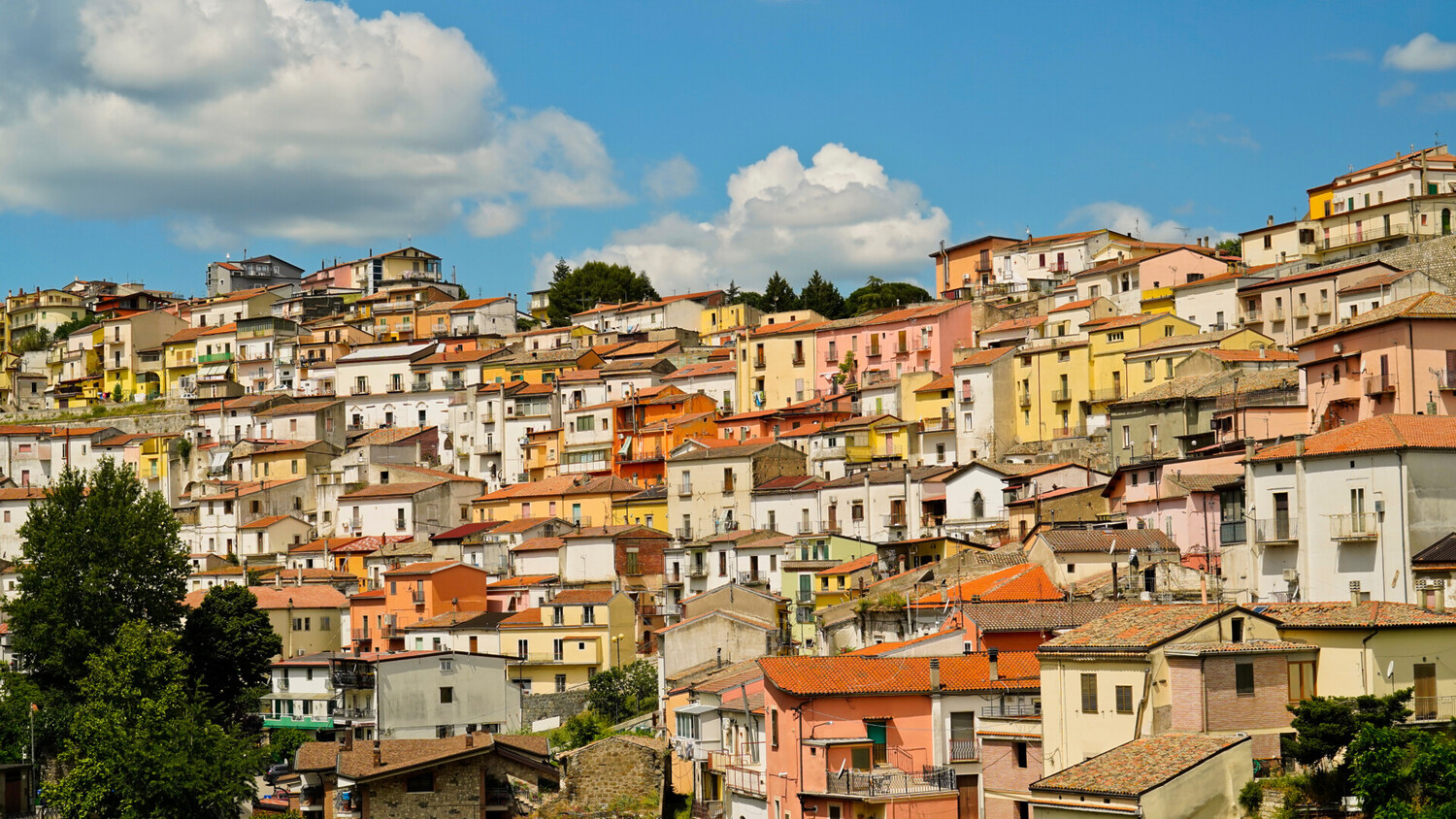
Just a short drive from Venosa, Rapolla is one of those small towns that quietly steal your heart. Wander its quiet streets, duck into the Church of San Donato to admire centuries-old frescoes, and soak in the calm atmosphere shaped by Byzantine and Norman roots. Surrounded by thermal springs and vineyards, Rapolla is also a proud part of the Aglianico del Vulture wine region, so yes, your glass will be full and your camera roll, too. It’s the kind of place that rewards slow travel and curious eyes.
Good to Know before visiting Venosa Italy
Where is Venosa?
Venosa is a charming town located in the Basilicata region of southern Italy. Specifically, it lies in the province of Potenza, nestled between the Apennine Mountains and fertile valleys. It’s about 170 km east of Naples and 90 km west of Bari, making it a tranquil yet accessible destination for those exploring southern Italy.
Is Venosa worth visiting?
Absolutely! Venosa is a hidden gem rich in history, culture, and Italian charm. With its unique blend of Roman, medieval, and Renaissance influences, alongside a peaceful countryside setting and rich cucina locale, Venosa offers an authentic Italian experience off the typical tourist trail. It’s perfect for history buffs, food lovers, and anyone seeking a quieter, culturally rich destination.
What is the history of Venosa?
Venosa boasts a remarkable historical legacy dating back to Roman times. Founded in 291 BC as a Roman colony, it became the birthplace of the famous Latin poet Horace. Over the centuries, Venosa was shaped by Lombards, Normans, and other ruling dynasties. Its past still echoes in its attractions, including the Roman amphitheater, the Abbey of the Santissima Trinità, and Jewish catacombs. The fusion of religious and architectural styles tells the story of a town that served as a cultural crossroads for millennia.
What are the best hotels in Venosa?
Venosa offers a range of cozy accommodations suited for all types of travelers. Here are some top-rated options:
- Hotel Orazio Palace: A boutique hotel near the historic center with elegant rooms and modern amenities.
- Hotel Villa Del Sorriso: Comfortable and welcoming, with beautiful views and a great restaurant on site.
What are the best restaurants in Venosa?
Venosa is known for its hearty Lucanian cuisine, rich in traditions and local ingredients. Don’t miss these culinary stops:
- Locanda del Palazzo: Located in a historic building, this restaurant serves elevated versions of traditional dishes with an emphasis on regional wines.
- Ristorante L’Incanto: A local favorite for classic dishes like homemade pasta, lamb, and foraged mushrooms.
- Trattoria del Borgo: Cozy and authentic, offering rustic Italian meals in a relaxed atmosphere.
- Osteria Vinosia: Great for wine lovers; combines local cuisine with a refined wine-tasting experience.
What are the top attractions in Venosa?
There’s plenty to explore in Venosa. Highlights include:
- Abbey of the Santissima Trinità: A partially unfinished but impressive abbey often regarded as a symbol of the town.
- Archaeological Park: Explore Roman ruins including a bath complex, amphitheater, and mosaic floors.
- Hornerian House: Archaeological site believed to be linked to the poet Horace.
- Jewish Catacombs: A unique underground labyrinth dating back to late antiquity, offering a rare glimpse into the Jewish community’s life in Southern Italy.
How do I get to Venosa?
The easiest way to reach Venosa is by renting a car, especially if you’re touring the Basilicata region. The nearest major cities with train stations are Potenza and Foggia. You can take a train to one of these cities, and then continue by regional bus or rental car. There is also good road connectivity via SS93 highway, and Bari Airport (around 90 km away) is the closest international arrival point.
When is the best time to visit Venosa?
The ideal time to visit Venosa is during the spring (April to June) and early fall (September to October). During these months, the temperatures are pleasant, the countryside is colorful, and local festivals offer a deeper dive into regional culture. Summers can be warm but still enjoyable thanks to the town’s breezy elevation.
Are there any local festivals in Venosa?
Yes! Venosa hosts several traditional festivals that bring the town to life. Key events include:
- Festival of San Rocco (August): Celebrated with processions, music, and firework displays.
- Sapori di Basilicata: A food festival showcasing local delicacies and wines, typically held in the summer.
- Horace Literary Festival: Celebrating the town’s most famous son with cultural events, poetry readings, and lectures.


